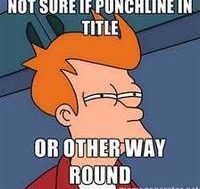
As I am the author-narrator to the story of my life, so are you to yours.
If stories are how we make sense of nonsensical reality, then sharing them is how we connect, each to each. The ability to control a story by assigning meaning to experience is most simply called authority.
 We all hold absolute authority over our internal, subjective experiences. Our external experiences occur beyond control, yet we may decide the meaning of them within the context of our personal story arc. We have the power to internally assign roles to other people relative to us as the center of the universe. We get to crown our heroes and name our villains, and if we’re lucky, we get to treat them accordingly. Over time, we may reinterpret our past to shape a present narrative we can live with, because as our perspective shifts, so will our readings of past events. Again, we are the only ones qualified to do this as we are the only ones with access to our internal, subjective experience within the context of our self-defined story arc as narrated by a shifting identity over time, so let’s just agree to take that as a given, k? K.
We all hold absolute authority over our internal, subjective experiences. Our external experiences occur beyond control, yet we may decide the meaning of them within the context of our personal story arc. We have the power to internally assign roles to other people relative to us as the center of the universe. We get to crown our heroes and name our villains, and if we’re lucky, we get to treat them accordingly. Over time, we may reinterpret our past to shape a present narrative we can live with, because as our perspective shifts, so will our readings of past events. Again, we are the only ones qualified to do this as we are the only ones with access to our internal, subjective experience within the context of our self-defined story arc as narrated by a shifting identity over time, so let’s just agree to take that as a given, k? K.
Subjective authority may be absolute, yet having your story heard, believed or acted upon as truth can be a battle without end if no one is listening to you. Recognising the subjective authority of another person requires you to a) acknowledge that they are a person, b) recognise that they are a subject, not an object and c) that they possess the authorial prerogative to name their experiences. It requires you to admit you don’t know, and then, when they tell you their inner story, to believe them.
It is no accident that the subjective authority of the Default is treated as sacred, while the authority of the Other over their internal experience is considered to be negotiable to non-existant, and is doubted.
An illuminating if rather contentious example of internal authority in action is the word “creepy”. It’s a subjective term, with a relative value. It describes an act [or actor] who inspires a sense of foreboding or pre-fear in the subject. The subject is the only one who can possibly know how they feel, and thus cannot be proven wrong. Basically if you feel creeped out, then whatever provoked that feeling is automatically creepy, as relevant to your life and your story. It’s describing the cause of the creeped out feeling you have experienced.
Yet there’s always someone trying to argue that the absence of intent to be creepy means that one is categorically not creepy, despite there being no litmus test for creepiness. In fact, no two people will define creepiness in the exact same way, because we are all individuals with our own ideas and preferences. What one person may find sweet or charming, another will find creepy or obnoxious. The act hasn’t changed. The subject observing the act has. The subject is not wrong about their subjective feelings. But if the subject is the wrong flavour of person, then their internal authority will not be treated as authoritative. It will be questioned, and there will be doubt.
Offence is another subjective term. Again, we are all individuals, and we are all subject to unique combinations of difficulties and strengths. For example, rape is a real threat for many people but it is treated as fictional by some. As such, our mental defence against jokes that make light of rape is going to depend on our subjective experience of the world and how we choose to live within that reality. Offence also isn’t a yes-no binary; for every potential source of offence, there’s a spectrum of vulnerability ranging from kitten to pedestrian to tank to Seaquest to Death Star. The level of harm done by an offensive joke will depend on the subject’s vulnerability and cannot be controlled by the joker.
Just like with creepy, if someone is offended by a joke, the joke is automatically offensive. Offence describes a subjective feeling that only the subject has the internal access to verify.
However, not all offense is inherently bad. A sexist may be horribly offended by a joke that makes fun of their sexist beliefs. Yet sexism is the default position in society, so the offended sexist is able to sidestep the joke and be taken unto the bosom of the many powerful people who think and talk and act just like them. Since sexism is a Bad Thing and ought to be challenged, in this context offence is to be encouraged.
When a person who is treated as Other – who already lives with a giant target sign painted on their back, with prejudice, injustice and violence being directed at them just for existing – then gets targeted by the punchline to someone’s weaksauce excuse for comedy, their offense is in a different context, as it is heaping offense upon real oppression and perpetuating a Bad Thing.
Obvious conclusion is obvious, so work it out for yourselves.
Despite subjective authority allowing us to occupy the authorial role in relation to our own lives, our inner stories are not the only words we live by. Since we depend on stories for context, it follows that controlling the external, shared narratives that people will hear, believe and act on as truth is a real source of power.
This external authority is the ability to assign meaning to other people’s experiences. It is in theory accessible to anyone if the story they spin is sufficient to convince their audience.
However, since we are taught that certain people matter more than others, certain people’s opinions will carry more weight than others. Deciding who to listen to, whose authority to accept, is not a conscious, rational decision. It’s a lifelong process of subtle conditioning via idle prejudices; doubt by ten thousand cuts.
While subjective authority is internally absolute, it is acutely vulnerable to external doubt. On the other hand, external authority can derive its power only from the number of people agreeing to submit to its interpretation of events, which may result in ‘The Emperor’s New Clothes’-type absurdities, or representative democracy.
It comes then as no surprise that external authority generally ends up in the hands of the people whose own subjective authority is considered sacred, and/or is backed up by cruder powers. The shared stories the sacred author imposes on the world – carefully or carelessly shaped to maintain the Default’s position in the limelight – tends to rely on the reductionist binary thinking that appeals to the inattentive and uses the resultant “us vs them” mentality as a powerful form of social control. Unconvinced bystanders may be discouraged from voicing their doubt via more aggressive means, such as the threat of violent force, or the violence of capitalism.
The link between authority and power makes sense, since in a very real way, if you can control the story, you can control the world.
The shortcomings of powerful authority is the shortcomings of any fiction; their vulnerability to doubt. The overreliance on necessarily incomplete readings of reality as the basis for truth can result in common sense being exposed as common nonsense. Once humanity not only believed, but knew for a fact that the Earth was flat. The truth was out there, but the myth persisted for centuries because no one thought to check. Today we may travel the globe, talk about going global, worry about globalisation.
Change the story, and you change the world.













